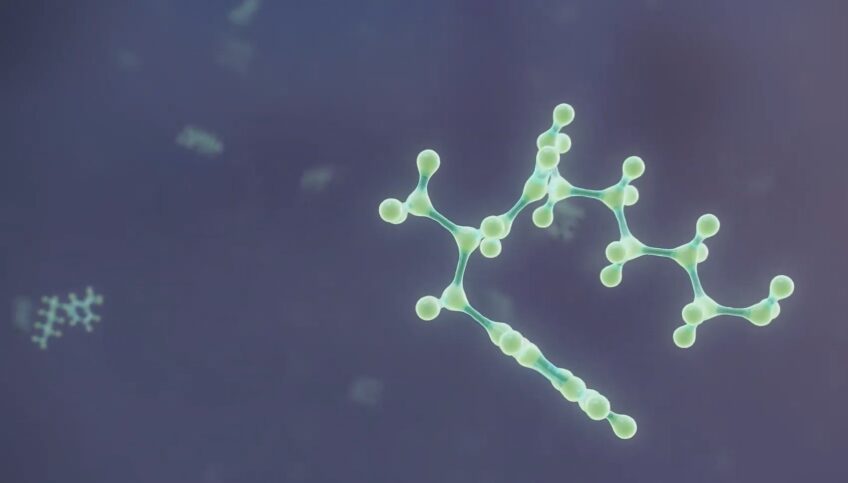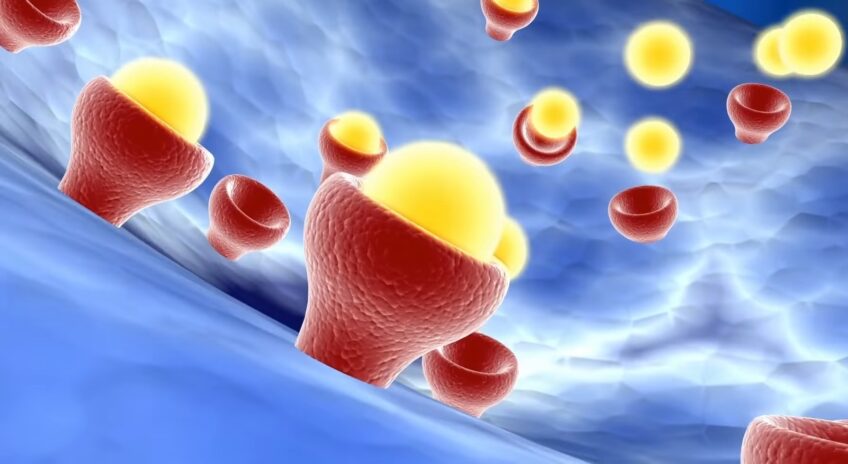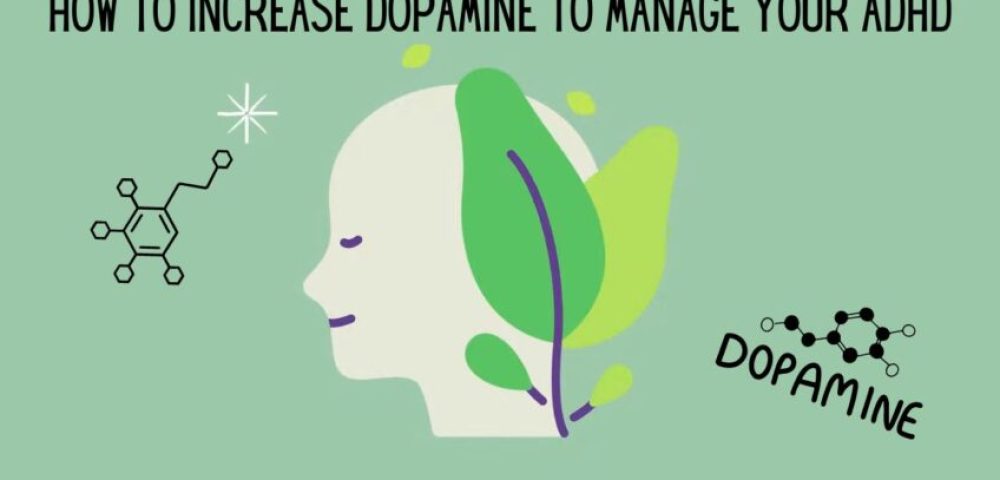Attention deficit hyperactivity disorder (ADHD) is a developmental condition typically diagnosed in childhood. Individuals with ADHD usually have difficulty maintaining focus and exhibit episodes of hyperactivity. Although the condition primarily affects children and adolescents, the symptoms can persist into adulthood. Due to telemedicine, it is possible to get ADHD treatment and medication prescriptions online at mental health platforms like MEDvidi.
According to the Centers for Disease Control and Prevention, up to 8.8 percent of children and adolescents in the US have ADHD. Most cases resolve with treatment, but about 2.5 percent progress into adulthood. Globally, ADHD prevalence is estimated at 3-5 percent.
The causes of ADHD are not fully understood. But some studies attribute the disorder’s symptoms to genetic alterations that disrupt the dopamine pathway in the brain. This post will teach you more about common signs of such disruptions and how to increase dopamine for ADHD symptoms management.
Page Contents
The Role of Dopamine in ADHD
Dopamine is a brain chemical that regulates the brain’s reward system. The reward pathway consists of neurons that get activated when you experience pleasure. When the reward system is activated, the body releases dopamine to reinforce pleasure-seeking behaviors and prolong the rewarding activity.
Besides pleasure, dopamine controls several brain functions, including learning, motivation, memory, and attention. So, dysregulation of dopamine levels can lead to psychiatric disorders such as ADHD, depression, and addiction.
Medications such as Adderall effectively alleviate ADHD symptoms because they block dopamine transporters — neurotransmitters that remove excess dopamine. However, the etiology of ADHD remains unclear. So, while it is associated with low dopamine levels, other factors are also to be considered in developing this condition.
Symptoms of Dopamine Deficiency
Since dopamine regulates many brain functions, its deficiency manifests with different symptoms. They involve several body systems and include:
- Lack of motivation
- Difficulty concentrating
- Poor memory
- Depression (feelings of hopelessness and worthlessness)
- Anhedonia
- Decreased libido
- Sleep disturbance
- Anxiety and mood instability
- Impulsivity
- Lack of organization
People with low dopamine levels can also develop Parkinsonism, characterized by poor coordination, tremors, and limb stiffness. Sometimes, symptoms like constipation could also occur in dopamine deficiency.
Medical Approaches to Increasing Dopamine for ADHD

The most common way to increase neurotransmitter levels and alleviate ADHD symptoms is medication management. Based on their mechanisms of action, there are two primary classes of ADHD meds:
1. Stimulant medications
As the first-line treatment, stimulants are the most prescribed ADHD drugs. These medications target dopamine transporters, inhibiting dopamine reuptake. It boosts the quantity of neurotransmitters available to interact with the dopamine receptors. Examples include amphetamines (Adderall) and methylphenidate (Ritalin). Noteworthy, you need a prescription to acquire these medications due to their high potential for abuse and addiction. But with telemedicine, obtaining an Adderall prescription for ADHD is much easier.
2. Non-stimulant medications
Non-stimulant medications are less frequently prescribed for ADHD treatment because their effectiveness differs from stimulants. However, they are still effective for some individuals and can be the only choice for those who don’t tolerate stimulant medications. Examples of non-stimulant drugs include atomoxetine (Strattera), clonidine (Catapres), and guanfacine (Intuniv). Unlike stimulants, they have a low potential for abuse as they target norepinephrine, another neurotransmitter responsible for some ADHD symptoms.
Aside from medications, a doctor may recommend neurofeedback. Electroencephalographic studies show that individuals with ADHD have lower arousal levels in the frontal cortex than those without the disorder. Neurofeedback increases arousal in the brain’s frontal cortex by monitoring the brain’s activity. As a result, it improves ADHD symptoms like impulsivity and hyperactivity.
Natural and Lifestyle Approaches to Boosting Dopamine

The treatment combining FDA-approved medications and behavior training is the most effective way to manage ADHD. While medicines help to eliminate the symptoms, a person can establish new routines that will be beneficial even after stopping medications. Here is how to increase dopamine naturally for ADHD management.
1. Dietary interventions
Proper nutrition is essential for optimum functioning. Likewise, the right foods are critical in managing ADHD as they help improve impulse control. First, foods rich in proteins should be present in the diet of a person with ADHD. When broken down, proteins provide amino acids that are essential in the production of neurotransmitters. Eating protein-rich foods such as lean beef, eggs, nuts, and dairy products provides an adequate supply of the amino acids necessary for dopamine production, thereby boosting dopamine levels in the body.
Second, people with ADHD should take balanced meals. According to nutrition experts, half the dinner or lunch plate should consist of vegetables and fruits, a quarter should contain fiber-rich carbohydrates, and proteins take the remaining quarter. Adequate fiber in the diet prevents dipping and spiking of blood glucose levels, essential in improving attention in ADHD.
2. Supplements
Synthesis of dopamine is a complex process that requires several micronutrients such as zinc, magnesium, iron, folate, vitamin B6, and niacin. Unhealthy eating often leads to deficiencies of such minerals and vitamins, affecting dopamine production. For instance, research shows that children with ADHD have lower serum iron levels than those without the disorder.
A daily dose of dopamine supplements for ADHD ensures that your body receives adequate micronutrients needed to produce the neurotransmitter. Animal studies have also shown that supplements such as vitamin D and green tea influence dopamine levels. However, further research is necessary to know more about their impact on humans.
3. Exercise and physical activity
Generally, regular exercise is essential in maintaining good health and improving mood. But it can be even more rewarding for an ADHD brain as it significantly increases dopamine levels. A3-month study indicated that practicing yoga for at least an hour daily increases dopamine.
4. Meditation

Meditation is associated with better mental and physical health. It involves clearing the mind while letting your thoughts float without judging them. Regular meditation can increase dopamine levels, which will help individuals remain positive and be more motivated.
5. Sufficient sleep
Improving sleep is one of the simplest natural ways to increase dopamine for ADHD. Dopamine is critical in maintaining wakefulness and alertness. Consequently, its production is usually optimal before waking up and significantly diminishes before bedtime. Disrupting sleep-wake patterns affects dopamine activity and leads to impaired concentration during the day. Getting good-quality sleep by following sleep hygiene practices helps to balance dopamine levels in the brain.
In Conclusion
Although the etiology of ADHD remains an area of research, the role of dopamine in its management is undisputed. The efficacy of stimulant medications in alleviating hyperactivity and impulsivity symptoms indicates a link between dopamine levels and the development of ADHD. Increasing dopamine concentrations in the brain significantly improves ADHD symptoms. Besides medications, you can also use other natural remedies, including proper nutrition, exercise, sleep, and meditation. If they are not effective, consider consulting a healthcare professional.
Frequently Asked Questions

1. What Does Low Dopamine Feel Like?
Dopamine deficiency can make you feel unmotivated, tired and lose interest in previously pleasurable activities. Besides ADHD, these symptoms can occur in other disorders associated with low dopamine levels, such as depression. Fortunately, treatment regimens are available for most conditions resulting from low dopamine levels.
2. What Causes Lack of Dopamine in ADHD?
Although the etiology of ADHD is unclear, research shows a close association with low dopamine levels in the brain. This lack of dopamine is attributed to a genetic defect that reduces the response of neurons to dopamine.
3. Is It Safe to Take Dopamine Supplements?
Yes, most dopamine supplements have a good safety profile when taken correctly. However, it is necessary to consult with your doctor as some supplements might interfere with your other medications.
4. Are There Any Risks to Increasing Dopamine Levels Too Much?
Too much dopamine in the brain can lead to an overdrive characterized by aggression, hallucinations, and insomnia. Paranoia, as seen in schizophrenia, is also an effect of excess dopamine. In the case of excessive levels, it is recommended to consult a doctor and receive proper treatment.
Final Words
Attention deficit hyperactivity disorder (ADHD) continues to be a prevalent concern for many, affecting children, adolescents, and adults alike. Dopamine’s role in ADHD is evident, given the disorder’s links with disruptions in dopamine pathways and the efficacy of treatments that target dopamine regulation.
While the medical community provides pharmacological solutions like stimulant and non-stimulant medications, individuals have an arsenal of natural and lifestyle approaches at their disposal. From dietary changes and supplementation to exercise, meditation, and ensuring adequate sleep, these interventions can serve to boost dopamine levels naturally.
Nonetheless, the importance of a tailored approach, under professional guidance, cannot be overstated. ADHD management, like any health-related challenge, demands a balance between medical intervention and holistic practices, ensuring optimal well-being for those affected.
If you’re looking to enhance your knowledge about ADHD and its management, you might also be interested in software tools like Adobe Express, which can simplify the process of adding audio to video presentations or educational materials. Integrating audiovisual elements into ADHD-related content can be an effective way to engage and educate individuals affected by the condition.
Also Read:
- Best 10 Supplements to Reduce Cortisol - Manage Your…
- Testofuel vs Prime Male - Increase Your Testosteron Levels
- Sculpting Your Paper: Techniques for Writing a…
- Does Cold Showers Increase Testosterone? - Yes, But…
- Does Creatine Increase Testosterone? - Grow in More…
- How to Increase Testosterone Level for Beard Growth…















